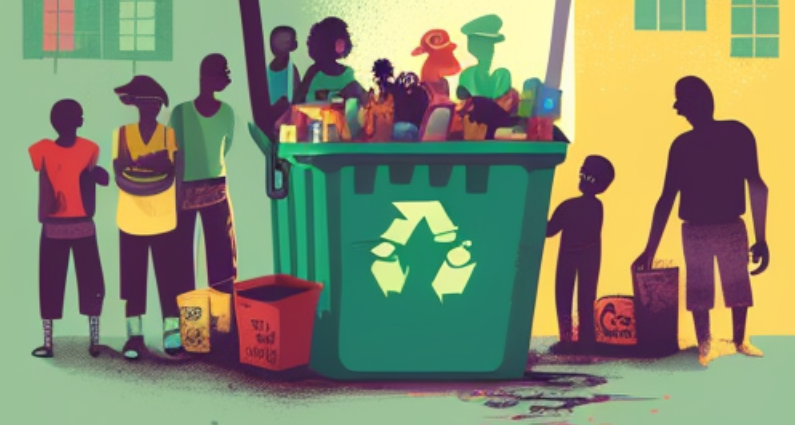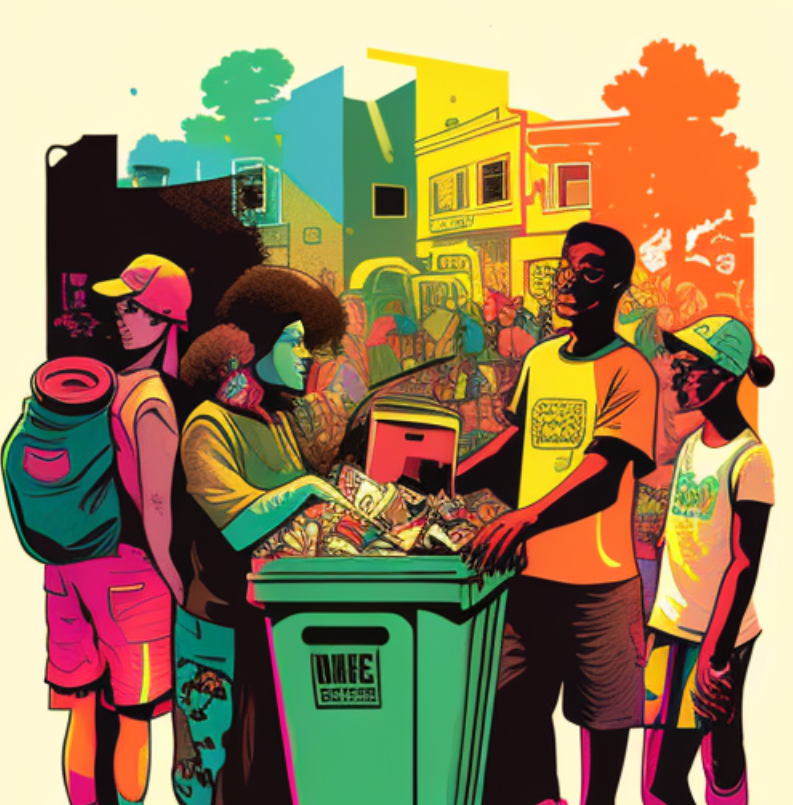The garbage problem has been a significant problem for the environment these days. Because of improper garbage disposal, the effects of waste on the environment and wildlife have become prevalent. Now that many people are committed to keeping the environment healthy, households and businesses are serious about recycling.
Recycling is the best way to reduce the garbage that goes to landfills, which is not a short-term solution to our garbage problems. This practice is not only about segregating trash and throwing them in the proper garbage bin. What’s important is how you can avoid throwing out trash through recycling.
Why Recycle?
Recycling does not only benefit the environment. It can also help your household economically by reusing items. When we recycle, we convert our old things into new products. Due to this, we contribute to lessening the garbage that ends up in landfills our way. You’ll be surprised how many items we throw out that are recyclable.
This practice provides a long-term result that can benefit future generations. It helps us practice sustainability by reducing the need for new raw materials for different items. Doing this can be beneficial, especially if you recycle metals and plastics.
For example, the foundries can use scrap metals from copper wires, automotive, or electrical parts. By doing this practice, they can help reduce the mining of these metal elements. In addition, it can also help them save money because scrap metals are less expensive than virgin materials.
What Items Can Be Recycled?
You can recycle almost everything you can find in your home. However, it can be hard to identify which ones are recyclable and which are not. Individuals who need to be more knowledgeable in this practice may need clarification about how to throw out their garbage. To help you understand what you can recycle, here are the most common household items that are reusable.
Paper
The amount of paper that goes into landfill is about 25% of household trash. Almost all paper products, including magazines and pizza boxes, are recyclable. Flyers that make your desk messy can be recycled as well. Old phone books and school books may also go to the recycle bin. However, if these are still usable, you can donate them to children’s centers for better purposes.
As we know, paper manufacturers sometimes use trees as their source of raw materials in producing paper. When you recycle paper, you can save trees and some natural resources. Its recycling involves pulping, where paper products are broken down and cleaned.
Not all paper can be recycled. Laminated paper, photographs, carbon paper, and wax paper are not recyclable because they are made from different materials. Also, wet and soiled paper should not go with paper products meant to be recycled. These should go straight to compost pits.
Want a kick-ass website?
Get a FREE Site Audit!
Plastic
Plastic bags, containers, wraps, and other plastic items can be recycled. It is the most common material that you can reuse for another purpose. It is also one of the most significant environmental pollutants, especially for marine life. It takes centuries to break down and contains harmful and toxic materials.
When recycled plastics are shredded into small amounts and melted down to create new products, you can also start recycling plastics at home. You can reuse plastic bags when you go to the grocery store, use old plastic containers as plant boxes, or reuse them as food storage.
However, some garbage collectors do not accept all plastic products. Sometimes, plastics containing polystyrene or contaminated with glue and oil should not be included in clean, recyclable plastics.

Metals
The most common recyclable metals are aluminum products, copper wires, and tin cans. Scrap metals are most useful for industrial purposes. These are sustainable since they don’t lose their mechanical and physical properties even when melted and treated before reusing.
Ferrous metals like steel and iron are the most common recycled metals. On the other hand, non-ferrous metals such as aluminum and copper are also recyclable. Doing this reduces the need to produce virgin materials and mine new minerals.
It also benefits manufacturers since scrap metals are generally more cost-effective than new raw materials.
Electronic Waste
Old and broken appliances that take up much space in your home or office should be disposed of and recycled. Other electronic devices, such as old mobile phones, computers, laptops, or circuit boards, are accepted for recycling.
But it is crucial to keep in mind that only qualified facilities and experts should recycle electronic waste. Many old appliances contain harmful and toxic chemicals that can seriously harm the environment. You can dispose of them by bringing them to proper facilities or hiring a hauling or dumpster service.
Used Oil
There are many sources of used oil in our household. It may come from used motor oils, used cooking oil, or other machines that we use at home. Used oil can harm the environment, mainly if disposed of improperly. It is the primary contaminant of waterways and soil.
Refining used oil to the same performance standards as virgin oil for machine use is a method of recycling it. In addition, some companies buy gallons of vegetable oil to filter and treat it to produce biodiesel fuel.
How to Start Recycling
If you understand the importance of recycling, it will be easy for you to practice it. It can start as small as breaking your old habit of combining all trash in a single garbage bin. Many cities require residential areas to have a designated recycling bin that trash collectors may easily pick up.
Know the fast-moving objects in your household and designate a separate container for plastic bottles and cans. As for plastic bags, have a storage box where you can store plastics that you can reuse on your next trip to the grocery store.
You should also know the schedule of garbage collectors in your area. It will help keep your place organized. Otherwise, piled-up trash can lead to improper disposal. You may overlook recyclable items and include them in your regular garbage.
If no one picks up your recyclables, you can bring them to recycling facilities. If you find this inconvenient, there are hauling companies that offer pick-up services for recyclables. You don’t need to look for a recycling facility with these companies. They will do this for you at an affordable rate.
Check out the items that you can reuse or repurpose. A good example is containers or storage boxes that can be reused for storing old clothes you plan to donate.
Practicing sustainability by recycling in your community
Almost all cities and counties are committed to proper waste management. They establish regulations when it comes to recycling and proper garbage disposal. Practice proper disposal in your home so that your neighbors will follow. You may also organize a recycling program and partner with schools in your area so kids can practice recycling at a young age.
You may also support your community by joining clean-up drives. You can reach out to establishments to encourage them to join recycling programs or sponsor clean-up drives. Though it may seem daunting, you can rent dumpsters for proper disposal of the waste you accumulate in your community.
Conclusion
Recycling is just a small effort that can provide long-term environmental benefits. It is a crucial component to practicing sustainability, not only at home but also for the entire community. Identifying which materials are recyclable is easy. There are a lot of sources–from online to your local government. Recycling can be your small contribution to bringing a greener future to the next generation.
Do you need leads?
Get a FREE Site Audit! We can help!

